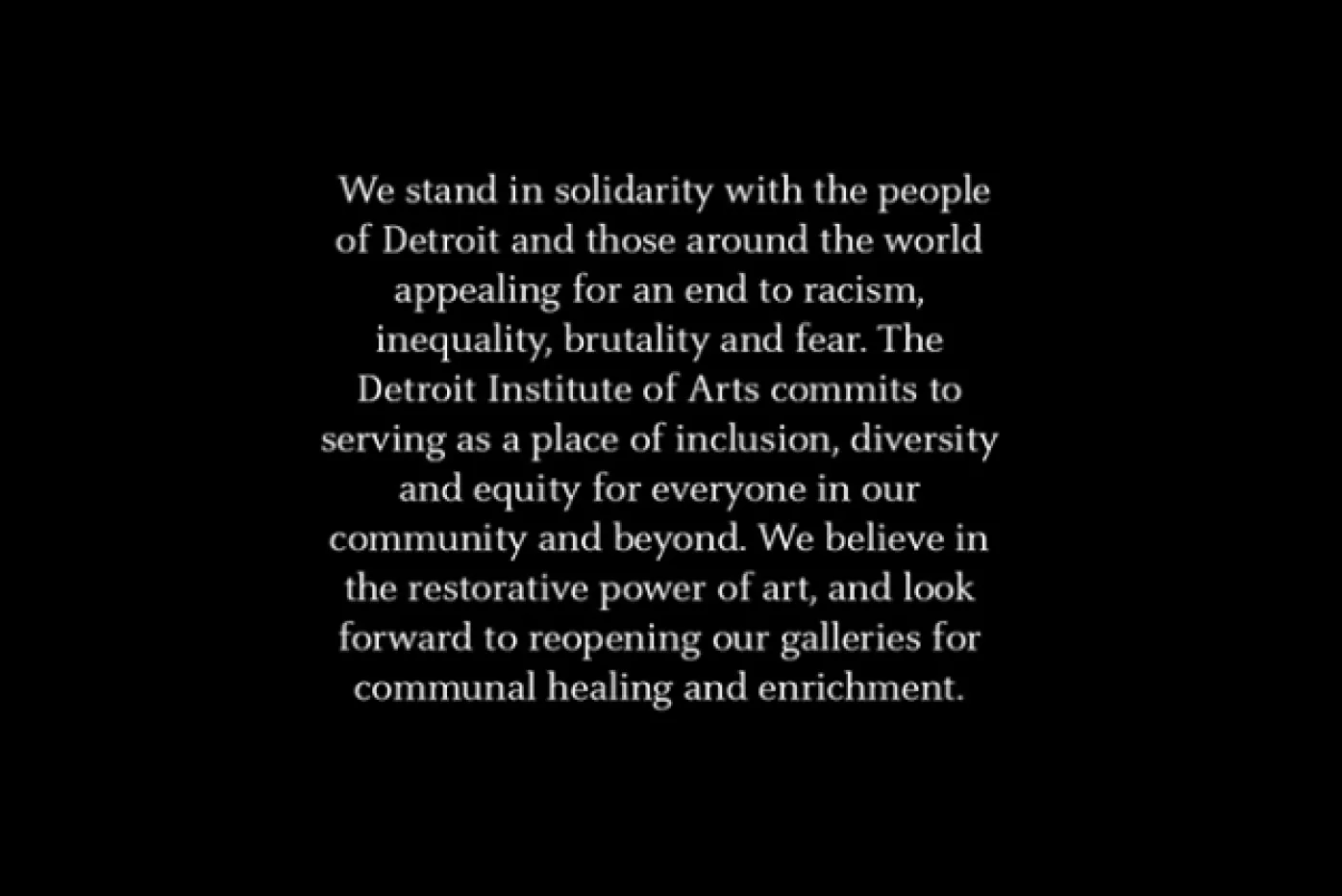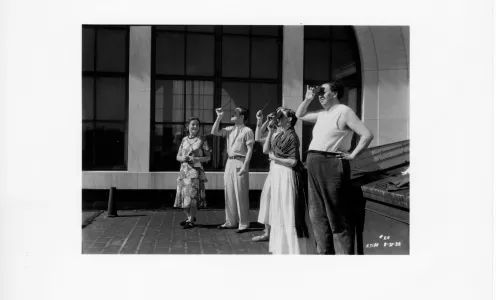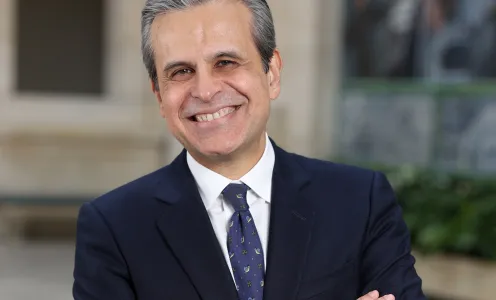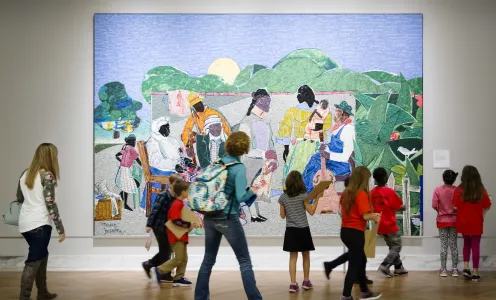Message from the Director: On Equity
Updated Jul 20, 2022
Dear Friends,
It has been a difficult few weeks – for our nation, for our community, and for our DIA family. Today, I am not writing to you with answers or promises, but instead with questions and hopes. How do we do more than just “do better”? How can the DIA be better? What that looks like and how we get there is still to be determined, but I can share with you some plans we have made to help us become a more inclusive and equitable museum for our visitors and staff.
Last year, we applied for and received a three-year grant from the Institute for Museum and Library Studies (IMLS) for much-needed work on inclusion, diversity, equity and accessibility (IDEA) at the DIA. We understand the need for our staff, board and volunteers to do necessary individual work to create a museum where everyone feels welcome, valued, and included.
Last year the museum worked with the Michigan Roundtable for Diversity and Inclusion to develop and deliver The Art of Diversity and Inclusion: Cultivating Cultural Competency to our team members.
By the time we closed in March, almost 70% of our staff had completed the training including almost 80% of the leadership team. Additional sessions will be held as soon as we are able with an intent for 100% participation. This training, which deals with dimensions of diversity, implicit bias, and cultural understanding, will also be facilitated with the Board of Directors later this year.
This initiative is a journey; cultural competency training is only one step. We are accelerating the work outlined in the IMLS grant. The groundwork for this project has continued during our closure, and next week a team of staff members will select a consultant to guide our work.
The consultant will help us define and articulate our philosophy and vision for this work, developing a IDEA roadmap to unify our efforts across the museum. They will conduct a comprehensive needs assessment of board members, staff, volunteers, visitor survey results and IDEA policies and work practices to determine the work that we need to do, and establish methods to measure our impact.
What I’ve shared today is not the solution to every issue we face, and there will always be some, both inside and outside the museum, who would prefer we take different strategic or philosophical directions. What I hope to do is be clear about our intentions, our plans and our goals, then listen and learn as we work toward them together. There will be missteps, mistakes and misunderstandings along the way – that is how change happens, so we will approach this work with patience and open minds.
Finally, we recognize that the steps I have outlined here are primarily focused on the internal practices and culture of the museum. The next step for real growth and change is to apply and permeate this internal learning throughout our governance, programming, exhibitions, and overall visitor experience.
“Do the best you can until you know better. Then when you know better, do better.” – Maya Angelou
I hope that we not only do better, but that we become better, together.
Salvador

We stand in solidarity with the people of Detroit and those around the world appealing for an end to racism. The Detroit Institute of Arts commits to serving as a place of inclusion, diversity and equity for everyone in our community and beyond.
Dear Friends,
It has been a difficult few weeks – for our nation, for our community, and for our DIA family. Today, I am not writing to you with answers or promises, but instead with questions and hopes. How do we do more than just “do better”? How can the DIA be better? What that looks like and how we get there is still to be determined, but I can share with you some plans we have made to help us become a more inclusive and equitable museum for our visitors and staff.
Last year, we applied for and received a three-year grant from the Institute for Museum and Library Studies (IMLS) for much-needed work on inclusion, diversity, equity and accessibility (IDEA) at the DIA. We understand the need for our staff, board and volunteers to do necessary individual work to create a museum where everyone feels welcome, valued, and included.
Last year the museum worked with the Michigan Roundtable for Diversity and Inclusion to develop and deliver The Art of Diversity and Inclusion: Cultivating Cultural Competency to our team members.
By the time we closed in March, almost 70% of our staff had completed the training including almost 80% of the leadership team. Additional sessions will be held as soon as we are able with an intent for 100% participation. This training, which deals with dimensions of diversity, implicit bias, and cultural understanding, will also be facilitated with the Board of Directors later this year.
This initiative is a journey; cultural competency training is only one step. We are accelerating the work outlined in the IMLS grant. The groundwork for this project has continued during our closure, and next week a team of staff members will select a consultant to guide our work.
The consultant will help us define and articulate our philosophy and vision for this work, developing a IDEA roadmap to unify our efforts across the museum. They will conduct a comprehensive needs assessment of board members, staff, volunteers, visitor survey results and IDEA policies and work practices to determine the work that we need to do, and establish methods to measure our impact.
What I’ve shared today is not the solution to every issue we face, and there will always be some, both inside and outside the museum, who would prefer we take different strategic or philosophical directions. What I hope to do is be clear about our intentions, our plans and our goals, then listen and learn as we work toward them together. There will be missteps, mistakes and misunderstandings along the way – that is how change happens, so we will approach this work with patience and open minds.
Finally, we recognize that the steps I have outlined here are primarily focused on the internal practices and culture of the museum. The next step for real growth and change is to apply and permeate this internal learning throughout our governance, programming, exhibitions, and overall visitor experience.
“Do the best you can until you know better. Then when you know better, do better.” – Maya Angelou
I hope that we not only do better, but that we become better, together.
Salvador


